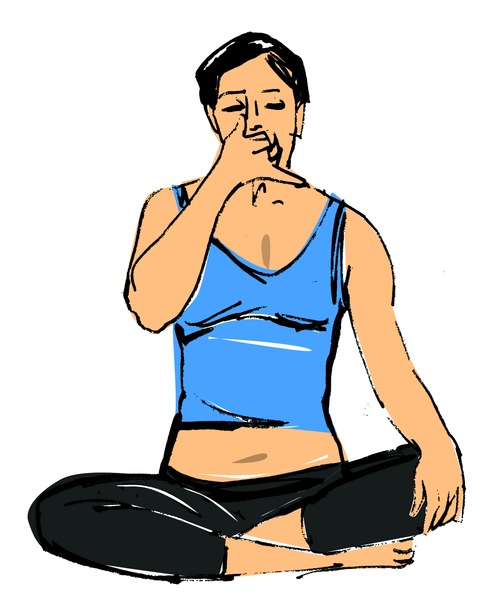
Asthma is a frightening diagnosis, one people don't like to hear. Internationally, the nomenclature for it has been changed to "reactive airways disease". It means a person's airways react inappropriately to a variety of environmental situations.
Susceptible individuals may be sensitive to pollen, perfume, cigarettes, cold air, items in food, or common medication such as aspirin or ibuprofen. In normal people, the nose reacts by sneezing once or twice, the airways expand and a cough or two clears them. In genetically prone individuals, the sneezes continue unabated and the airways constrict. Mucous gets trapped in the lungs. Violent coughing and even vomiting can occur. Eventually, the airways may remain constricted even without triggers.
The tendency to wheeze and sneeze is hereditary. Asthma can be triggered in childhood and then continue all through life. It can also occur intermittently, at certain times in the menstrual cycle, when the weather changes, or only at night.
It is easy to recognise an attack. There is a whistling sound while breathing out, non-productive cough and, as the respiration becomes inefficient, all the chest muscles start to work, causing obvious distress. Fever is present if the attack has been aggravated by a viral lung infection.
Blood tests may reveal an increased eosinophil count. X-rays are usually non-specific but may reveal structural abnormalities. Spirometers and peak flow meters can measure the efficiency of breathing and help the physician decide on medication.
Inhalers, nebulisers and rotahalor devices deliver medication directly to the lungs. Relief is immediate and side effects minimal. The oral medication used earlier took longer and had side effects such as tremors and palpitations.
Inhaled medication can be short acting (3-4 hours) and used for acute attacks or prophylactically. The long acting medication is given to prevent attacks at night and as maintenance therapy. It is combined with a steroid to prevent inflammation in the lungs. Severe attacks of asthma can be fatal and require emergency hospitalisation.
While alternative medicine has anecdotally helped control and prevent attacks, there are no studies to prove it.
To prevent asthma attacks:
• Avoid allergens such as cigarette smoke, room fresheners and food additives. It helps if you know your triggers
• Do not lie down after a heavy meal
• Maintain ideal body weight. Asthma is not only worse in obese people but also less responsive to medication
• Take flu immunisations every year. Take pneumococcal vaccine after the age of 65
• Regular exercise increases lung capacity and can decrease the severity as well as duration of the attacks
• Yoga and breathing exercises are beneficial
• Take medication as prescribed by the doctor and follow instructions. Do not self-medicate or overdose on tablets or inhalers.
The writer is a paediatrician with a family practice at Vellore and author of Staying Healthy in Modern India. If you have any questions on health issues, please write to yourhealthgm@yahoo.co.in










